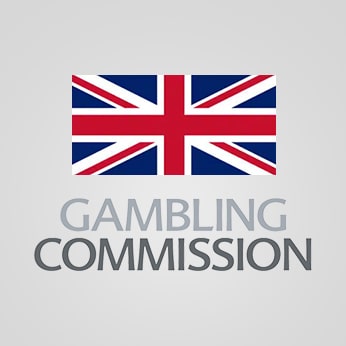

In the heart of the United Kingdom operates one of the most influential gambling regulators in the world – the UK Gambling Commission (UKGC, official website: https://www.gamblingcommission.gov.uk/). This organization, established under the Gambling Act 2005, is an independent non-governmental body that has been safeguarding the interests of British players and the integrity of the country’s gambling industry for over 15 years.
Introduction: The Beginning of the UKGC’s Story
The history of the UKGC began in 2007 when the commission took over the responsibilities from its predecessor, the Gaming Board for Great Britain. This was a period of significant change in the UK gambling industry, as traditional forms of gambling began to be actively complemented by online gambling, necessitating a new, more comprehensive approach to regulation. In 2013, the commission’s scope expanded even further when the National Lottery came under its control, marking a significant milestone in the regulator’s history.
Modern Authority: The Extensive Jurisdiction of the UKGC
Today, the UKGC represents a powerful regulatory body whose jurisdiction covers almost all forms of gambling in the UK: from traditional casinos and bookmakers to slot machines and online platforms. The only exception is spread betting, which is overseen by the Financial Conduct Authority (FCA).
Remote Gambling: The Importance of Online Regulation

The Commission gives special attention on remote gambling—gambling conducted via the internet, phone, and other communication methods. The Gambling (Licensing and Advertising) Act, enacted in 2014, significantly expanded the regulator’s powers in this area. Now, any company wishing to offer its services to British players must obtain a UKGC license, regardless of where its servers and offices are physically located.
Mission and Goals: Core Principles of the UKGC’s Work
The Commission’s mission is based on three key principles:
- Preventing crime in the gambling industry,
- Ensuring fairness and transparency in gambling,
- Protecting children and vulnerable individuals.
To achieve these goals, the regulator has a wide range of tools at its disposal – from issuing licenses and conducting investigations to imposing hefty fines and revoking operating licenses.
Examples of Illegal Practice
The following are a few notable cases from recent years that illustrate unfair practices in the gambling industry:
- In 2016, the Commission fined Camelot Group £3 million for inadequate control over lottery ticket fraud.
- In 2018, bookmaker William Hill was forced to pay a £6.2 million fine for systemic violations related to anti-money laundering measures.
- In 2019, Ladbrokes Coral paid £5.9 million due to deficiencies in player protection systems and anti-money laundering efforts.
- In April 2024, Bet365 was fined £582,120 for violations of anti-money laundering regulations and social responsibility in its online business. (All funds received were directed towards socially responsible initiatives).
- In October 2024, the football-themed site Sorare.com faced court over allegations of providing unlicensed gambling facilities to consumers in the UK.
“888 casino was fined by the UK Gambling Commission for non-compliance with social responsibility.”
Current Challenges: Responding to Modern Threats in the Industry.
The work of the Commission has become particularly relevant in recent years as the gambling industry has faced new challenges. In 2024, significant restrictions were introduced on online slots: the maximum stake for players over 25 years old was set at £5 per spin, while for those aged 18 to 24, it was set at £2 per spin. These measures demonstrate the regulator’s commitment to adapting the rules to changing realities and enhancing player protection.
Ensuring the Safety of Gambling.

An important feature of the work of the UKGC is its close interaction with law enforcement agencies. The Commission’s special intelligence unit gathers information about illegal activities in the gambling sector and conducts preliminary investigations. When suspicious activities are detected, the information is passed on to the police for further investigation.
Responsible Gaming: New Requirements for Operators
Since 2020, the Commission has implemented a mandatory requirement for operators to financially contribute to organizations involved in the research, prevention, and treatment of gambling addiction. This decision reflects the regulator’s comprehensive approach to the issue of responsible gaming and the protection of vulnerable individuals.
Criticism of the UKGC’s Work: Problems and Challenges
However, the work of the Commission is not without criticism. Some experts point to the regulator’s insufficiently swift response to the emergence of new forms of gambling, particularly in the online space. There have been instances where licensed operators ceased operations, leaving customers with unpaid funds, raising questions about the effectiveness of the consumer protection system.
Adapting to changes
Nonetheless, UKGC continues to adapt to new challenges and improve its operation. The regulator systematically reviews and updates regulations, conducts consultations with market participants and the public, striving to find the optimal balance between industry development and the protection of player interests.
Conclusion: The Role of the UKGC in the Future of the Gambling Industry
The UK Gambling Commission remains one of the most authoritative gambling regulators in the world, whose expertise and practices are often emulated by other countries. In the context of the constantly changing landscape of gambling, the role of the Commission as a guarantor of fairness and safety in the UK gambling industry is becoming increasingly significant. Its activities clearly demonstrate how a government regulator can effectively oversee a complex and dynamic sector, ensuring the protection of public interests and supporting the healthy development of the legal gambling business.
